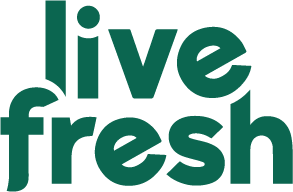Fette sind oft umstritten. Manche schwören auf sie, andere versuchen, sie zu meiden. Dabei sind Fette lebenswichtig! Sie geben Energie, schützen Organe, regulieren Hormone und helfen Deinem Körper, fettlösliche Vitamine wie A, D, E und K aufzunehmen. Doch Fett ist nicht gleich Fett – der Unterschied zwischen gesättigten und ungesättigten Fettsäuren ist entscheidend. Lass uns das Ganze genauer anschauen!
Highlights
- Fette sind essenziell für den Körper, liefern Energie, unterstützen Hormone und helfen bei der Aufnahme fettlöslicher Vitamine.
- Gesättigte Fettsäuren sind stabil und hitzebeständig (z. B. Butter, Kokosöl), während ungesättigte Fettsäuren (z. B. Olivenöl, Nüsse) entzündungshemmend wirken und die Herzgesundheit fördern.
- Besonders Omega-3-Fettsäuren sind wichtig für Gehirnfunktion, Zellgesundheit und Entzündungshemmung – ideal aus Fisch, Leinöl oder Chiasamen.
- Vermeide Transfette in industriell verarbeiteten Lebensmitteln, da sie das Risiko für Herz-Kreislauf-Erkrankungen erhöhen.
- Eine ausgewogene Mischung aus gesättigten und ungesättigten Fetten, kombiniert mit hochwertigen Ölen und natürlichen Fettquellen, ist der Schlüssel zu einer gesunden Ernährung.
What are saturated and unsaturated fatty acids?
Fatty acids differ in their chemical structure, and this has an influence on how they are converted into fatty acids. Food and in the Body behavior. Sounds complicated? Don't worry, we'll make it simple:
Saturated fatty acids
Saturated fatty acids have a "rigid" chemical structure because they have no Double bonds possess. This stability makes them solid at room temperature, for Example in butter or coconut oil. They are among the most stable Grease and are ideal for frying.
- Typical sources:
Animal Fats (butter, cream, cheese, meat) and some plant-based foods. Fats such as coconut oil and palm oil. - Properties:
Stable when heated and long-lasting.
Unsaturated fatty acids
Unsaturated fatty acids contain one or more Double bondswhich make their structure more flexible. As a result, they are usually liquid at room temperature, like olive oil or rapeseed oil. They are considered particularly valuable Fat sources.
- Typical sources:
Vegetable oils (olive, rapeseed, linseed oil), avocados, nuts, seeds and fatty fish such as salmon. - Subdivision:
- Monounsaturated fatty acids: One Double bond (e.g. in olive oil).
- Polyunsaturated fatty acids: Two or more double bonds (e.g. in Omega-3 oils such as linseed oil or fish oil).
Why are saturated and unsaturated fatty acids important?
The Difference between saturated and unsaturated fatty acids lies not only in their structure, but also in their effect on your health. Both types of fat have their place in a healthy nutrition, but they have different effects:
Saturated fatty acids - the "solid" fats
Saturated fatty acids are known for their Stable structure and offer a number of advantages. They deliver Energyare stable and thus easy to store.
However, avoid highly processed fats such as margarine, as they are often associated with Trans fats which are produced during the industrial hardening of fats. These Trans fats can not only LDL cholesterol level but also to increase the good HDL cholesterol levels which reduces the risk of Cardiovascular diseases considerably. They are also suspected of Inflammatory processes in the body and to promote the Cell health to impair your health. Instead of relying on such processed products, you should switch to natural sources of fat such as butter in moderation, coconut oil or cold-pressed vegetable oils, which contain valuable unsaturated fatty acids and support your body better.
Unsaturated fatty acids - the "liquid" fats
Unsaturated fatty acids are essential components of a healthy diet and have numerous benefits for your body. They promote the Heart healthregulate the Cholesterol level and work anti-inflammatory. Especially Omega-3 fatty acids play an important role, as they not only Cell health but also to support the Brain function and thus Memory and Concentration strengthen.
Despite these benefits, unsaturated fatty acids are sensitive opposite Heat and Light. To make the most of their effect, you should preferably use them in cold dishes like salads.
A clear recommendation: rely on high quality unsaturated fatty acids to give your body the best possible support. These healthy fats can reduce the risk of Cardiovascular diseases lower the Cholesterol level regulate and through their anti-inflammatory Effect the Cell regeneration promote. At the same time, they play a decisive role for your cognitive performanceby using the Brain function and strengthen your Concentration improve. Integrate these valuable fatty acids into your diet to benefit from their many advantages in the long term.
Healthy sources of fat - what you should include in your diet
- Examples for Food with saturated fatty acids:
- Butter: Good for baking.
- Coconut oil: Ideal for Asian dishes and frying.
- Cheese and cream: good sources of fat and protein.
- Examples for Food with unsaturated fatty acids:
- Monounsaturated fatty acids:
Olive oil, avocado, almonds - perfect for salads, dips or snacks. - Polyunsaturated fatty acids:
- Omega-3High-fat fish (e.g. salmon, mackerel), linseed oil, chia seeds, walnuts.
- Omega-6Sunflower and safflower oil (but in moderation, as an excess can promote inflammation).
For more tips on healthy eating and weight management, we recommend our article on the topic What is a healthy diet? and Food to lose weight.
Practical tips for your everyday life
- Focus on diversity:
Combine different sources of fat. Olive oil is suitable for salads, linseed oil for cold dishes and coconut oil for frying. - Avoid trans fats:
These are often found in convenience products, margarine and deep-fried snacks. Trans fats are considered particularly unhealthy. - Storage:
Store sensitive oils such as linseed oil in a cool, dark place to preserve their quality. - Note quantity:
Fats are very high in energy. Stick to the rule of thumb: around 30% of your daily energy should come from Grease come.
Would you like to find out more about the basics of a healthy diet? Then take a look at our blog post on Food pyramid to.
FAQ - Answers to your most frequently asked questions
Should I avoid saturated fatty acids completely?
No, they are part of it in small quantities. Fats such as butter or coconut oil have their advantages. However, avoid highly processed fats such as margarine.
Why are unsaturated fatty acids so healthy?
They promote heart health, have an anti-inflammatory effect and contribute to optimal brain function. Especially Omega-3 fatty acids play a major role here.
Which oils should I use?
- Olive oil: Ideal for salads.
- Coconut oil: Good for frying and cooking.
- Linseed oil: Perfect for cold dishes because of its high Omega-3 content.
What are trans fats?
These are artificially hardened Fatswhich are used in many processed Food are stuck. They are considered particularly unhealthy and should be avoided.
Conclusion - It's all in the mix!
Fat is not the enemy - but it depends on the right choice. Reduce saturated fatty acidsby giving you more unsaturated fatty acids into your diet. Pay attention to high-quality oils and natural Fat sourcesin order to Body in the best possible way. So your diet stays healthyand you can still enjoy it!
Das könnte dich auch interessieren

Dr. Ulrike Fischer
Nutritionist
Developed on a scientific basis by Dr. Ulrike Fischer, who holds a doctorate in nutritional science.
Fette sind oft umstritten. Manche schwören auf sie, andere versuchen, sie zu meiden. Dabei sind Fette lebenswichtig! Sie geben Energie, schützen Organe, regulieren Hormone und helfen Deinem Körper, fettlösliche Vitamine wie A, D, E und K aufzunehmen. Doch Fett ist nicht gleich Fett – der Unterschied zwischen gesättigten und ungesättigten Fettsäuren ist entscheidend. Lass uns das Ganze genauer anschauen!
Highlights
- Fette sind essenziell für den Körper, liefern Energie, unterstützen Hormone und helfen bei der Aufnahme fettlöslicher Vitamine.
- Gesättigte Fettsäuren sind stabil und hitzebeständig (z. B. Butter, Kokosöl), während ungesättigte Fettsäuren (z. B. Olivenöl, Nüsse) entzündungshemmend wirken und die Herzgesundheit fördern.
- Besonders Omega-3-Fettsäuren sind wichtig für Gehirnfunktion, Zellgesundheit und Entzündungshemmung – ideal aus Fisch, Leinöl oder Chiasamen.
- Vermeide Transfette in industriell verarbeiteten Lebensmitteln, da sie das Risiko für Herz-Kreislauf-Erkrankungen erhöhen.
- Eine ausgewogene Mischung aus gesättigten und ungesättigten Fetten, kombiniert mit hochwertigen Ölen und natürlichen Fettquellen, ist der Schlüssel zu einer gesunden Ernährung.
Inhalt




